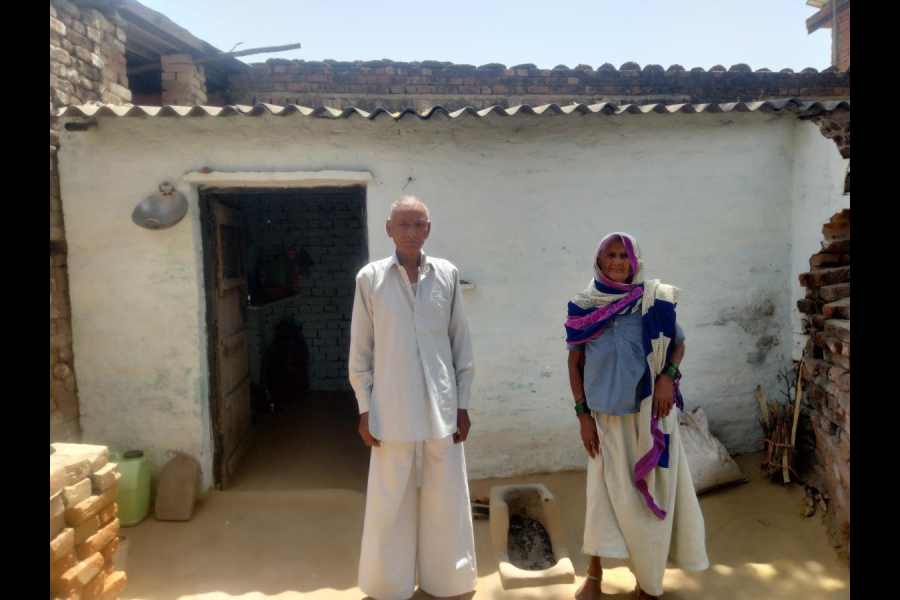For Bhojraj Jatav, 70, and wife Shagbati, 65, seeking housing support from the government has meant an endless wait.
The elderly Dalit couple live in a single-room, asbestos-roofed dwelling in Nagla Mahadev village, Tundla tehsil, which is part of Firozabad district in Uttar Pradesh. Their assets include a few clothes, utensils and an LPG cylinder that they received under the Pradhan Mantri Ujjwala Yojana.
But there is no gas in the cylinder. The couple have set up an earthen chulha in front of their room on which they cook, using crop stubble and firewood as fuel. With their three sons living separately, the couple’s only income is the husband’s old-age pension of ₹ 1,000 a month, provided jointly by the central and state governments.
Shagbati too became eligible for the pension five years ago and applied, but is still to receive it.
The couple’s life bears testimony to how the government’s welfare schemes tend to elude the poor, particularly Dalits.
One of these schemes is the Centre’s Pradhan Mantri Awas Yojana Grameen (PMAYG), under which below-poverty-line (BPL) families can seek an assistance of ₹ 1.2 lakh to build a pucca house.
“With an asbestos roof, the room gets very hot in the summer. And when it rains, the roof leaks,” Bhojraj said.
“I have applied for a house under the government scheme several times, the first time more than 10 years ago. The pradhan (sarpanch) always says my turn hasn’t come. I
am waiting.”
Of the village’s about 500 families, 100 are Dalit and the rest from the OBC Lodhi and Baghel castes. The Dalit colony in the village stands out with most of the families
living in ramshackle, one-room dwellings.
The Union government had started the Indira Awas Yojana in the 1980s to provide housing to BPL families. The Narendra Modi government revised the scheme, renamed it PMAY-G, and set itself the target of providing support to 2.95 crore families by April 2022.
The rural development ministry sanctioned 36 lakh houses in Uttar Pradesh, of which 35.7 lakh houses were completed by March this year.
The wait for housing and Shagbati’s pension are not the Jatav couple’s only problems. Bhojraj says he has no money to refill the gas cylinder. On rainy days, the couple cannot cook on the earthen chulha outside. Fortunately, one of their sons, who lives in the same village, chips in.
The National Food Security Act provides for 5kg of free food grains per person a month to up to 75 per cent of rural households. Bhojraj said the couple receive 9kg food grains a month instead of the 10kg they are entitled to, the remaining 1kg helping feed local corruption.
Rahul Kumar, 34, another Dalit resident of the village, said PMAYG houses are sanctioned mostly for OBC families. He added that the sarpanch is an OBC.
“Mostly those who can afford to pay bribes get houses. The Scheduled Caste families are poor. We have no land; we subsist on daily wages. We have no money to pay bribes,” Kumar said.
Calls to sarpanch Sukhveer Singh went unanswered.
Since they don’t possess land, the Dalits cannot claim the ₹ 6,000 yearly assistance under the Pradhan Mantri Kisan Nidhi, meant for landowning farmers.
“The landowners don’t work on their land. We work as agricultural labourers. We also take land on rent for cultivation. It’s a travesty that there’s no help for us,” Kumar said.

